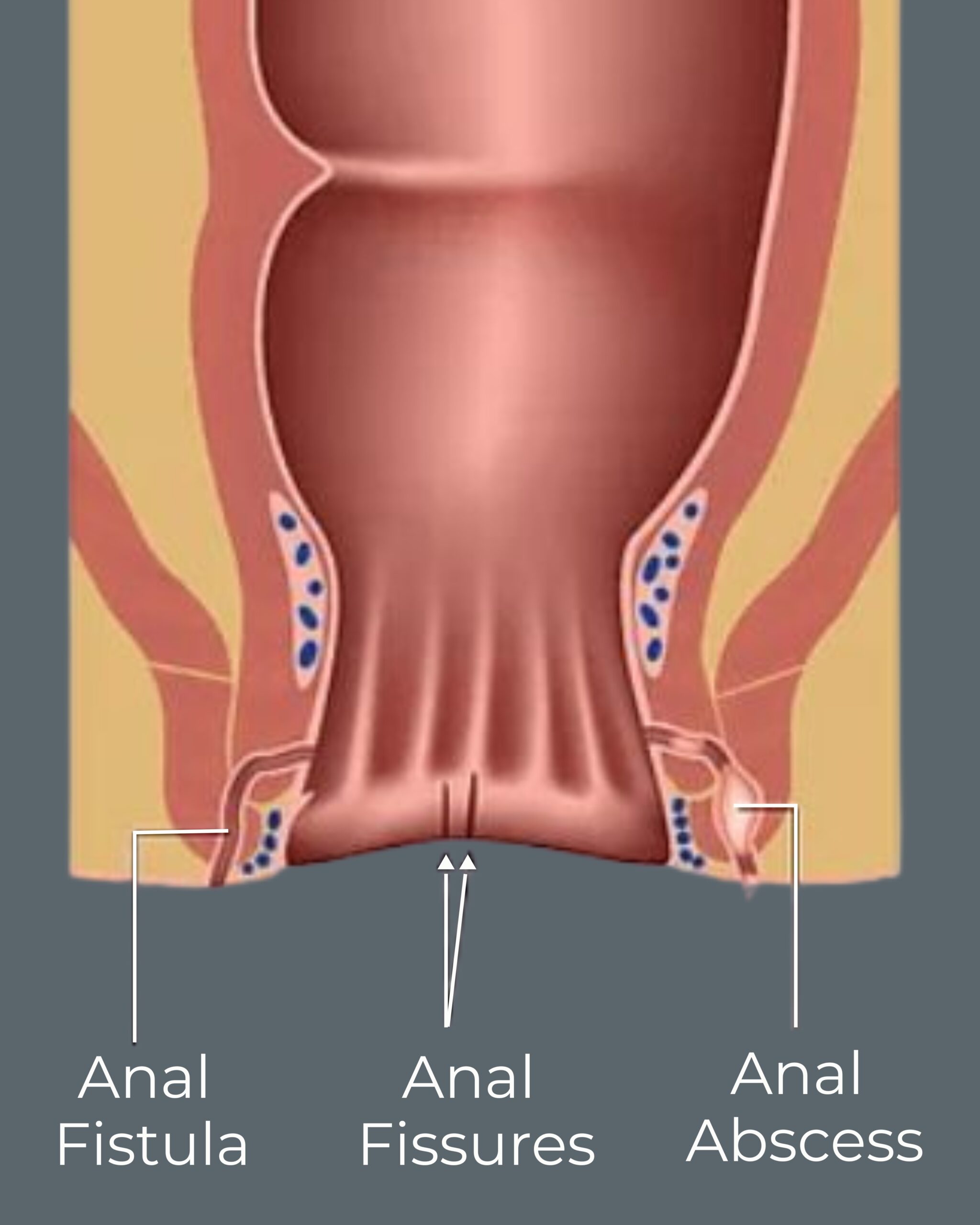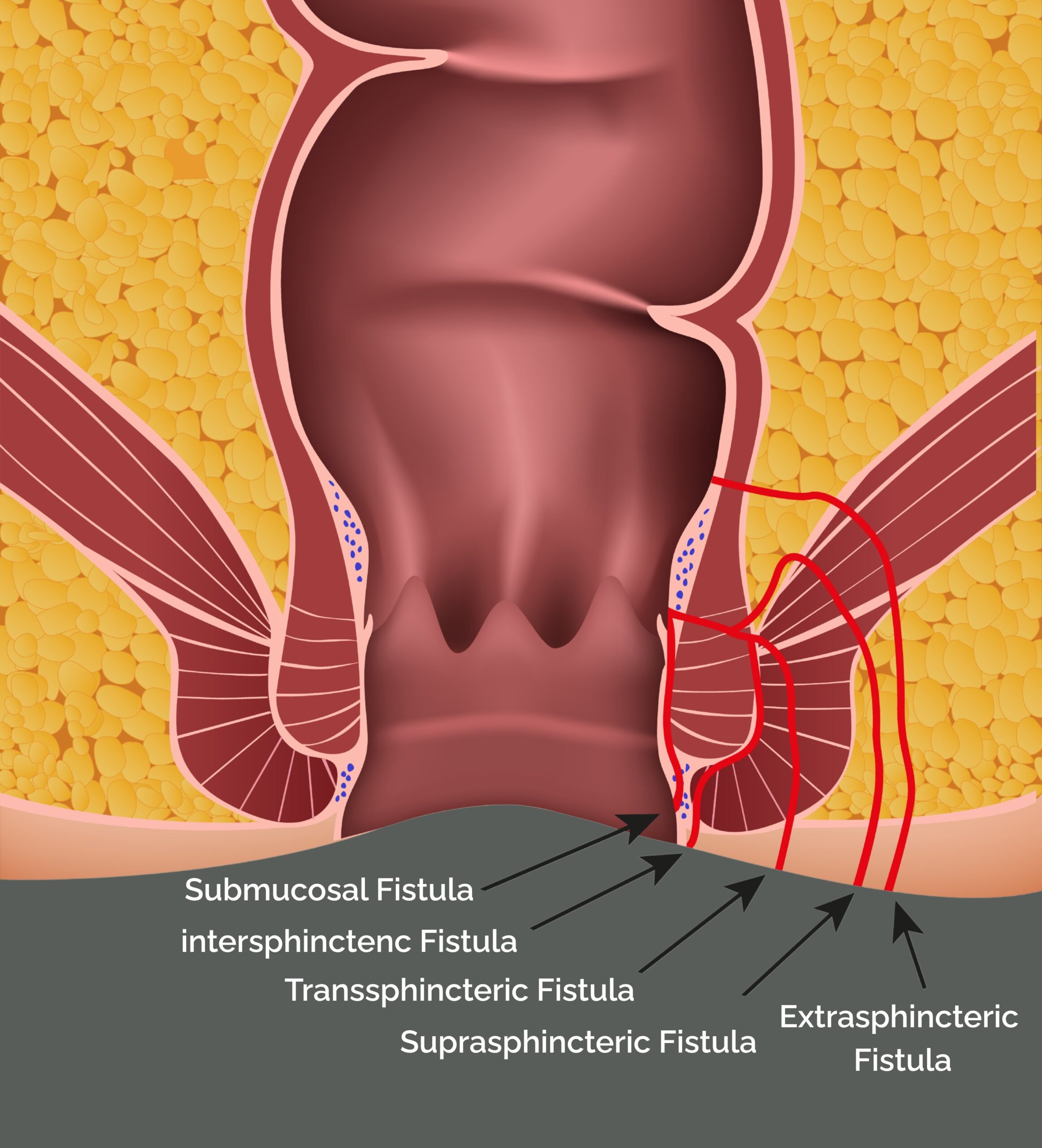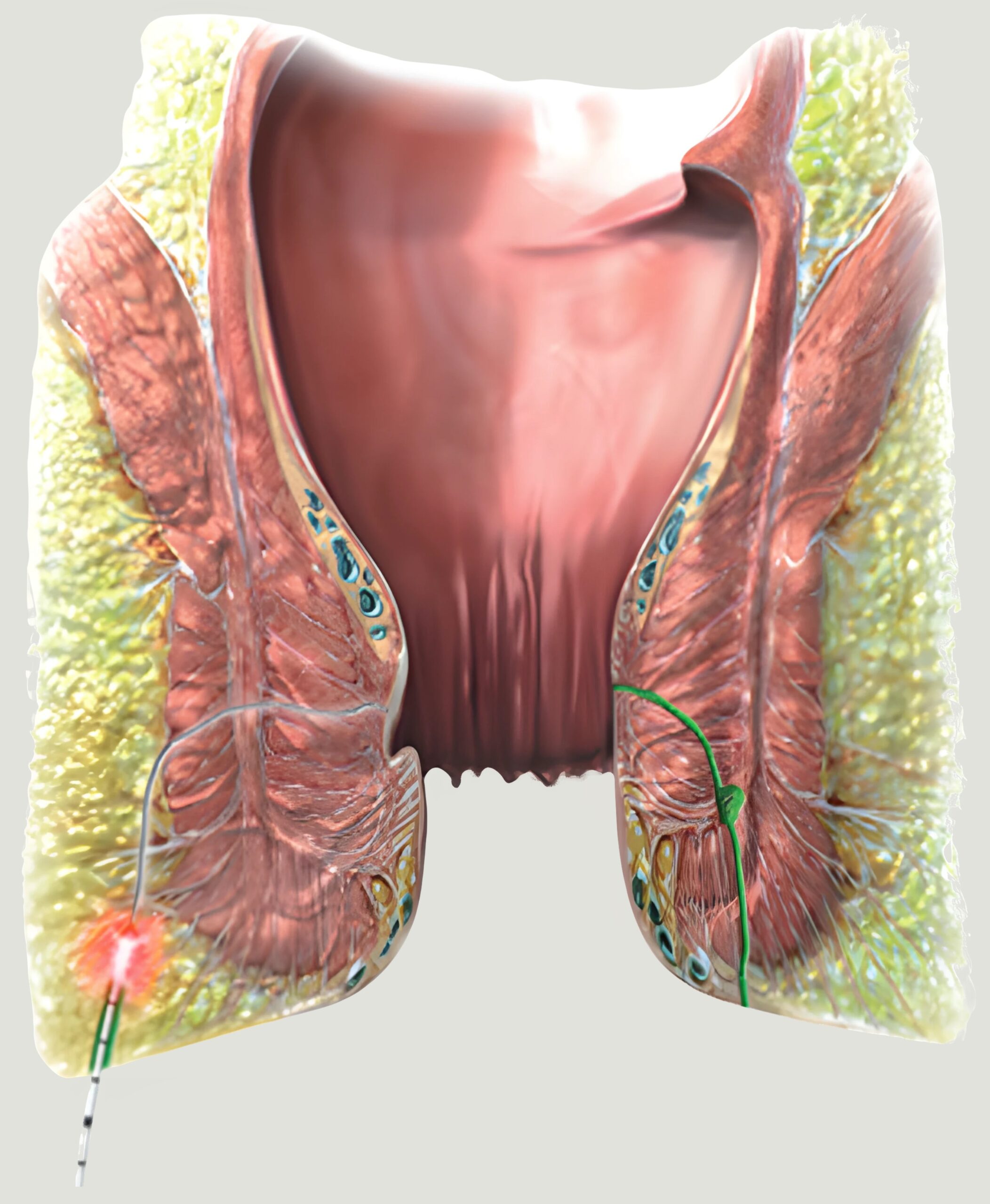Anal Fistula Treatment
Anal fistula treatment involves antibiotics, drainage of abscess, and surgical procedures like fistulotomy or seton placement

What is an Anal Fistula?

An anal fistula is an abnormal tunnel that forms between the inside of the anal canal and the skin near the anus. It usually develops as a result of an infection or abscess that didn’t heal properly, leaving behind a tract.
Anal fistulas can cause persistent discomfort, discharge, and recurrent infections if not treated. Unlike hemorrhoids or fissures, fistulas rarely heal on their own and typically require medical or surgical intervention.
Causes of Anal Fistula
The most common cause is an infected anal gland that forms an abscess and drains, leaving a tunnel behind. Other causes include:
- Recurrent anal abscesses.
- Inflammatory bowel disease (Crohn’s disease, ulcerative colitis).
- Tuberculosis or other infections (rare).
- Trauma or previous anorectal surgery.
Symptoms of Anal Fistula

Typical signs include:
- Persistent pain, swelling, or discomfort around the anus.
- Pain during bowel movements.
- Discharge of pus or blood, sometimes with foul odor.
- Irritation, redness, or itching of the skin around the anus.
- Recurrent abscesses.
- Visible small openings near the anus in some cases.
- In some instances, fever and fatigue during infection flare ups.
Traditional Treatment Options
Historically, anal fistulas have been treated with surgery (fistulotomy or seton placement). While effective, these procedures involve:
- Cutting through tissue, sometimes affecting the anal sphincter.
- Risks of incontinence or scarring.
- Longer healing time.

Advanced Treatment at Swift – Biolitec Laser Fistula Treatment (FiLaC®)
Swift Day Surgery Center offers FiLaC® (Fistula Laser Closure) by Biolitec, an innovative and minimally invasive approach to fistula treatment.
How the Biolitec FiLaC® Laser Works
- A fine, flexible laser probe is inserted into the fistula tract.
- The laser energy is delivered in a controlled, radial manner, closing the tract from the inside.
- The infected tissue is destroyed, and the tract collapses and seals.
- The anal sphincter is preserved, reducing risk of incontinence.
Benefits of Biolitec Laser (FiLaC®)
- Sphincter-preserving – no risk of cutting or damaging muscles.
- Minimally invasive – no large incisions or stitches.
- Low pain compared to traditional surgery.
- Fast recovery – patients return home the same day.
- Lower recurrence rate when compared to conventional surgery.
- Suitable for complex and recurrent fistulas.
- Safe and effective – internationally approved technology with a proven track record.

Why Choose Swift Day Surgery Center?

- Leaders in Biolitec Laser treatments in the UAE.
- Skilled colorectal surgeons experienced in advanced minimally invasive techniques.
- Day-surgery model – walk in, get treated, and return home the same day.
- Dedicated patient care team ensuring safety, comfort, and long-term results.
- Exclusive use of FiLaC® technology, making Swift a reference center in the region.
What to Expect – Patient Journey at Swift
Consultation & Diagnosis
Detailed examination by a colorectal specialist
Imaging tests (MRI or ultrasound) may be required to map the fistula
Personalized Treatment Plan
Conservative antibiotics if infection is active
FiLaC® Laser recommended for definitive treatment
Laser Procedure (Day Surgery)
Performed under anesthesia
Takes about 30–45 minutes
Same-day discharge (you can return home the same day)
Recovery & Aftercare
Mild discomfort for a few days
Daily hygiene and sitz baths recommended
Follow-up visit to confirm healing of the fistula tract
FREQUENTLY ASKED QUESTIONS
Is laser treatment safe for all types of fistulas?
FiLaC® is suitable for many fistulas, including complex and recurrent cases, but suitability will be confirmed by our specialists after evaluation.
Will I need to take time off work?
Most patients return to work within 2–3 days, depending on the complexity of their case.
How is this different from traditional surgery?
Unlike fistulotomy, the laser does not cut through sphincter muscles, reducing the risk of incontinence and offering a faster, less painful recovery.
Can the fistula come back?
FiLaC® significantly lowers recurrence rates compared to conventional methods, but long-term success also depends on overall health and underlying conditions (like Crohn’s disease).
Take the Next Step
If you suffer from persistent anal pain, discharge, or recurrent abscesses, it may be due to an anal fistula. At Swift Day Surgery Center, we offer the most advanced laser treatment (FiLaC® by Biolitec) to ensure effective healing with minimal pain and downtime.
Book your consultation today and let our experts help you regain comfort and confidence.
